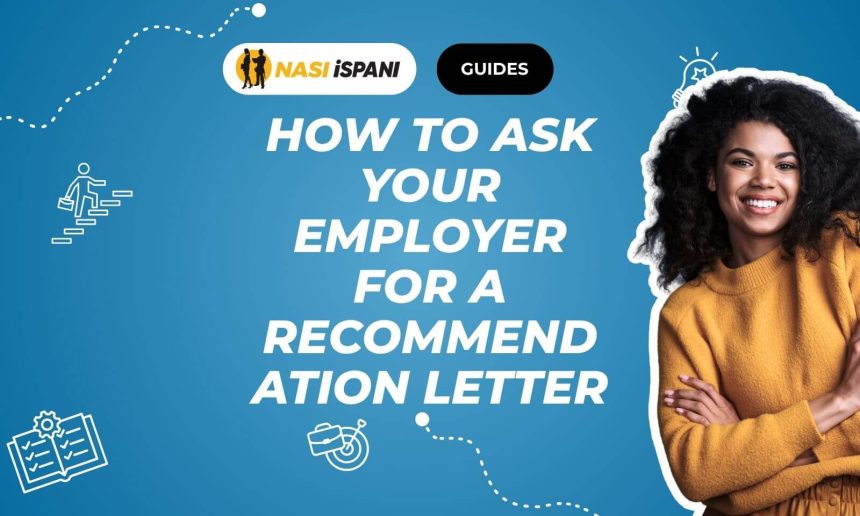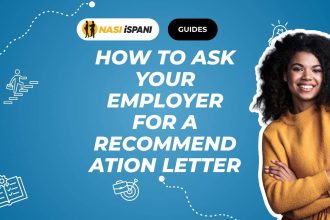Recommendation letters are often the hidden strength behind a successful job application, scholarship win, or postgraduate admission. While your CV highlights your achievements and skills, a recommendation letter adds credibility and proof from someone who has witnessed your performance first-hand. Yet, for many employees and students, asking for this letter feels daunting.
- Why a Recommendation Letter Matters
- When to Ask for a Recommendation Letter
- How to Request a Recommendation Letter Politely: Step-by-Step
- Email and In-Person Script Examples
- Good vs. Bad Examples of Requests
- Do’s and Don’ts of Asking for a Recommendation
- What to Do If Your Employer Declines
- Final Checklist Before Sending a Request
- Frequently Asked Questions
If you are preparing to move jobs, apply for a scholarship, or finish an internship, learning how to ask for a recommendation letter can make the process easier and more professional. This guide explains when and how to ask, provides scripts and email templates, and helps you navigate sensitive situations with confidence.
Why a Recommendation Letter Matters
A recommendation letter serves as an endorsement of your abilities, work ethic, and character. Recruiters and admissions panels want more than self-promotion; they want validation from credible professionals who know you personally.
- Credibility beyond your CV: A strong recommendation can tip the balance in competitive job markets.
- Proof of relationships: It demonstrates that you left a positive impression on supervisors or colleagues.
- Adaptability across contexts: Whether applying for a promotion, postgraduate study, or an international scholarship, a recommendation letter carries weight.
In South Africa, employers and academic institutions often use recommendation letters as supporting evidence for scholarships, bursaries, and internal promotions. Globally, they are seen as essential in applications for internships, postgraduate programs, and senior roles.
Recommendation vs. Reference Check vs. Character Endorsement
- Recommendation Letter: A written document, usually formal, highlighting achievements and suitability.
- Reference Check: A phone call or email where HR confirms your performance details.
- Character Endorsement: More informal, usually describing personality, community involvement, or soft skills.
Knowing the difference helps you ask for the right type of support.
When to Ask for a Recommendation Letter
Timing matters. A poorly timed request could make your employer uncomfortable, while a well-timed one shows foresight and respect.
- End of Internships or Contracts: Before leaving, request a letter from your supervisor. It secures a record of your performance.
- Job or Scholarship Applications: When applying externally, ask well before the deadline. Two weeks’ notice is ideal.
- Before Resigning: If you’re moving on, it’s wise to ask before giving notice to maintain goodwill.
- Academic Transitions: Students applying for postgraduate study or scholarships should ask lecturers or mentors before exams end.
Avoid asking during stressful company periods or when your own performance is under review. Always give your employer enough time to write thoughtfully.
How to Request a Recommendation Letter Politely: Step-by-Step
Asking for a recommendation doesn’t have to be nerve-wracking. Follow this step-by-step approach:
1. Prepare in Advance
- Know the purpose: job application, scholarship, or postgraduate admission.
- Gather key details: deadlines, recipient information, and submission method.
- Make it easy: share your updated CV or achievements list.
2. Choose the Right Person
Select someone who knows your work well:
- Direct manager or team leader.
- Department head or project supervisor.
- HR or academic mentor if relevant.
3. Ask at the Right Time
Provide at least two weeks’ notice. For scholarships or academic deadlines, more time is better.
4. Be Clear About What You Need
Specify:
- Who the letter is addressed to.
- The purpose of the letter.
- Skills or achievements to highlight.
5. Follow Up and Show Gratitude
- Send a thank-you message.
- Inform them of the outcome.
- Keep the relationship positive for future references.
Email and In-Person Script Examples
A well-written request makes it easier for your employer to agree. Below are templates you can adapt.
Professional Reference Request Email
Subject: Request for a Recommendation Letter
Dear [Employer’s Name],
I hope this message finds you well. I am applying for [specific job/scholarship/program], and a recommendation from you would add great value. Having worked under your supervision, I believe you can provide meaningful insight into my skills and work ethic.
The deadline is [date], and the letter can be submitted via [email/portal/attachment]. I have attached my CV and a short summary of my achievements for reference.
I would be very grateful for your support. Please let me know if you need additional details.
Kind regards,
[Your Name]

In-Person Script
“Hi [Manager’s Name], do you have a few minutes? I’m applying for [job/scholarship] and was wondering if you’d feel comfortable writing me a recommendation letter. I’ll provide all the necessary details, and the deadline is [date]. Your endorsement would mean a lot to me.”

For Interns or Contract Workers
Dear [Supervisor’s Name],
As my internship with [Company] is ending, I would greatly appreciate a recommendation letter reflecting my contribution and skills during this period. It would help me in future applications and allow me to demonstrate the experience gained under your guidance.
For Scholarships or Academic Applications
Dear Professor [Name],
I am applying for [scholarship/program], and your recommendation would strengthen my application. Having completed [modules/projects] under your supervision, you are well-placed to comment on my academic performance and dedication.
Good vs. Bad Examples of Requests
The tone of your request determines how your employer perceives it.
| Good Example | Bad Example |
|---|---|
| “Would you be willing to write me a recommendation for my postgraduate application? The deadline is 20 November, and I’ve attached details for your convenience.” | “I need a letter by tomorrow for a job. Please send it quickly.” |
| “I’d value your recommendation as someone who has guided me closely during my role in the marketing team.” | “You’re my boss, so you should give me a reference.” |
| “I’ve included my CV and achievements to make the process easier for you.” | “You already know what I’ve done, so just write something.” |
Professionalism, clarity, and respect go a long way in securing a strong recommendation.
Do’s and Don’ts of Asking for a Recommendation
Do’s
- Ask politely and give enough notice.
- Provide context and supporting documents.
- Be specific about the purpose of the recommendation.
- Thank the writer sincerely.
Don’ts
- Demand or pressure your employer.
- Wait until the last minute.
- Be vague about what you need.
- Forget to follow up or express gratitude.
What to Do If Your Employer Declines
Sometimes an employer may decline due to company policy, lack of time, or personal preference. Don’t take it personally.
- Thank them for considering your request.
- Ask if they could serve as a verbal reference instead.
- Seek alternatives: a different manager, a colleague, or an academic mentor.
- Keep the door open: “I understand, thank you for your honesty. I hope we can collaborate again in the future.”
Final Checklist Before Sending a Request
Before hitting “send” or approaching your manager, review this quick checklist:
- Have you identified the right person to ask?
- Did you prepare your CV and achievements summary?
- Are you giving at least two weeks’ notice?
- Have you drafted a polite and professional message?
- Did you clearly explain the purpose and deadline?
- Do you have a plan to follow up and say thank you?
If you can answer yes to all of these, you are ready.
Read more: 5 Career Moves You Can Still Make to End 2025 on a High Note
Frequently Asked Questions
1. Can I ask for a recommendation letter from more than one employer?
Yes. In fact, having multiple recommendation letters from different supervisors, colleagues, or mentors strengthens your application by offering diverse perspectives on your skills.
2. Should I give my employer a draft or outline to help them write the letter?
You don’t need to write it for them, but providing a draft outline, key achievements, or suggested talking points can make their job easier and result in a stronger letter.
3. What if my employer writes a generic letter that doesn’t highlight my achievements?
You can politely request adjustments by saying, “Would you mind adding more detail about my [specific project/skill]?” If that isn’t possible, consider supplementing with another reference.
4. Is it acceptable to request a recommendation letter via WhatsApp or SMS?
It’s better to use formal channels such as email or an in-person meeting. However, if your employer is informal and approachable, a short message asking for a meeting to discuss the request is acceptable.
5. How long should a strong recommendation letter be?
Typically, one to two pages. It should be detailed enough to provide examples of your work but concise enough for recruiters or admissions panels to read quickly.
6. Can I use the same recommendation letter for different applications?
Yes, if the letter is written in general terms. However, it’s more powerful if the letter is tailored to the specific job, program, or scholarship.
7. What’s the difference between a digital recommendation and a LinkedIn endorsement?
A digital recommendation is a formal, signed document used for official applications. A LinkedIn endorsement or recommendation is more informal, useful for building your online professional reputation but not always accepted by institutions.
8. How do I ask for a recommendation if I’m leaving on bad terms with my employer?
Focus on specific colleagues or supervisors who valued your work. If this isn’t possible, consider academic mentors, project leaders, or even clients who can vouch for your professionalism.
9. Do employers in South Africa charge a fee for writing recommendation letters?
No. Writing a recommendation is considered part of professional courtesy. If your company has an HR policy around references, they might require a formal process, but there should never be a fee.
10. How do I know if my employer has submitted the recommendation letter on time?
Always confirm the process. If they need to submit it directly to an institution, send a polite follow-up a week before the deadline. For hard copies, ask them to copy you or provide confirmation.
Also check: How to Write a Winning Cover Letter with ChatGPT
Asking for a recommendation letter is part of professional growth. It shows you value your employer’s opinion and are confident in your work. Whether you are an employee moving to a new job, an intern finishing a contract, or a student applying for scholarships, the right approach can secure a powerful letter that strengthens your application.
Use the templates, scripts, and etiquette tips in this guide to ask with confidence and professionalism. A strong recommendation is not just a letter; it is an investment in your career reputation.




